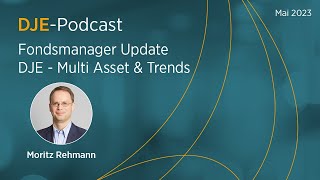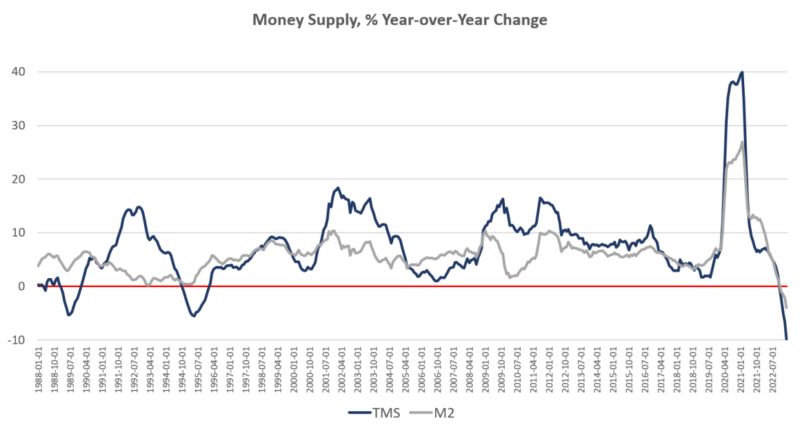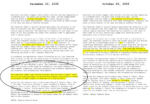Found 1,868 search results for keyword: label
Rohstoffe: Podcast mit Stefan Breintner und Manuel Zeuch
Nach einem guten Jahr für den Rohstoffsektor scheint sich die Euphorie in 2023 wieder abgekühlt zu haben.
Doch woran liegt das und welche Entwicklungen sind vor allem bei den Metall-Produzenten derzeit zu beobachten?
Gibt es womöglich doch gute Perspektiven?
Darüber und mehr sprechen wir im Podcast mit gleich zwei spannenden Gästen aus dem DJE Research Team: Leiter Stefan Breintner und Analyst Manuel Zeuch.
Unter anderem im Gepäck: Neueste...
Read More »
Read More »
Secession Means More Choices, More Freedom, Less Monopoly Power
[This article is Chapter 1 of Breaking Away: The Case for Secession, Radical Decentralization, and Smaller Polities. Now available at Amazon and in the Mises Store.]
Because of their physical size, large states are able to exercise more state-like power than geographically smaller states—and thus exercise a greater deal of control over residents. This is in part because larger states benefit from higher barriers to emigration than smaller states....
Read More »
Read More »
How Capitalism Redefined Masculine Virtue
One of the main fronts in the current culture war in the United States is the debate over "masculinity." Certain corners of the Left tell us that "toxic masculinity" is a terrible thing. Yet, it's often unclear whether masculinity is itself necessarily toxic, or if toxic masculinity is just one type of masculinity. How masculinity is defined is essential to the debate, and every pundit wants to define it his or her own way....
Read More »
Read More »
Rise of the Effete Authoritarians
Here in the West, particularly in countries such as the United States and Canada, we have experienced radical political and cultural changes over the past several years, and the pace of these changes seems to have accelerated since 2020. In the minds of many, there is an almost palpable feeling that a switch has been thrown and that the relationship between citizens and the state has been permanently altered.
Perhaps the most salient revelation in...
Read More »
Read More »
Neue Weltordnung – alte Spielregeln? – DJE-Gesprächskreis
Marketing-Anzeige
Der jährliche DJE-Gesprächskreis fand dieses Jahr wieder auf Schloss Hohenkammer statt. Unter dem Motto „Neue Weltordnung – alte Spielregeln? Wandel gestalten, Wissen nutzen, Werte schützen“ trafen sich Partner und Partnerinnen von DJE mit externen Fachleuten und DJE-Experten.
► Webseite: https://www.dje.de
► Podcast: https://spoti.fi/3AaB1mr
► Impressum: https://www.dje.de/impressum/
Seit über vier Jahrzehnten setzt die DJE...
Read More »
Read More »
Bremsen mit Verzögerung: DJE-Gesprächskreis mit Gabor Steingart und Dr. Ulrich Kaffarnik
Marketing-Anzeige
Am 23. Mai fand auf Schloss Hohenkammer der jährliche DJE-Gesprächskreis statt. Im Rahmen dieser Veranstaltung traf Journalismus auf Expertise. Der Wirtschaftsjournalist Gabor Steingart unterhielt sich mit dem DJE-Kapitalmarktexperten Dr. Ulrich Kaffarnik. In dem Gespräch beleuchten sie unter anderem die Impulse, die derzeit von den Notenbanken auf die Aktienmärkte ausgehen.
► Webseite: https://www.dje.de
► Podcast:...
Read More »
Read More »
Stromversorger: Ein Sektor unter Spannung – Podcast mit Hagen Ernst
Am 15. April gingen die letzten drei deutschen Atomkraftwerke vom Netz. Damit ist der nach Fukushima beschlossene Atomausstieg endgültig umgesetzt. Die öffentliche Debatte lebt unterdes weiter: um die Risiken der Kernkraft, der Endlagerung von Atommüll, aber auch um die möglichen Auswirkungen auf die Versorgungssicherheit und die deutsche Wirtschaft.
Mitten in diesem Spannungsfeld: Versorgerunternehmen. Über deren Perspektive und das interessante...
Read More »
Read More »
Pictet Report – In Conversation with Nicolas Rochat
Nicolas Rochat, the CEO and owner of the Swiss plastic-free sports brand Mover, describes what motivated him to transform the skiwear label into a pioneer in sustainability. Pointing to the widespread prevalence of greenwashing, he also explains how he would like to see Mover become a catalyst for change across the wider fashion and textiles industry.
https://www.pictet.com/ch/en/wealth-management
Read More »
Read More »
The Lure of a Stable Price Level
One of the reasons that most economists of the 1920s did not recognize the existence of an inflationary problem was the widespread adoption of a stable price level as the goal and criterion for monetary policy. The extent to which the Federal Reserve authorities were guided by a desire to keep the price level stable has been a matter of considerable controversy. Far less controversial is the fact that more and more economists came to consider a...
Read More »
Read More »
Fondsmanager-Update DJE – Multi Asset & Trends: Podcast mit Moritz Rehmann (Marketing-Anzeige)
Geopolitische Risiken und eine straffe Notenbankpolitik belasten auch weiterhin die Börsen. In diesem Umfeld müssen Fondsmanager flexibel und kreativ sein.
✅ Wie gelingt das einem Multi Asset Fonds wie dem DJE - Multi Asset & Trends?
Im aktuellen Fondsmanager-Update erklärt Fondsmanager Moritz Rehmann sein Anlagekonzept und skizziert, wie er den Fonds in dieser komplexen makroökonomischen Situation positioniert.
✅ Welche strategische...
Read More »
Read More »
The Bud Light Boycott and Clueless Corporate Executives
In perhaps one of the most unexpected and sudden shifts in consumer demand in recent years, sales of Bud Light have now fallen sizably for six weeks in a row, with no end in sight. The New York Post reported on Monday that "Sales of the US’s No. 1 beer were down 24.6% for the week ended May 13 compared to a year ago — slightly worse than the 23.6% dip they suffered a week earlier."
But it's not just Bud Light. Sentiment has turned...
Read More »
Read More »
Erleben wir doch kein “Sell in May”? – Podcas mit Dr. Ulrich Kaffarnik
Trotz eines angespannten Umfelds scheint das gemäß saisonalem Rhythmus erwartbare "Sell in May" bisher auszubleiben. Das Gegenteil ist sogar der Fall, insbesondere in Europa und bei den amerikanischen Tech-Schwergewichten. Schafft die Fed womöglich doch ein "Soft Landing" und die best vorhergesagte Rezession aller Zeiten bleibt aus? Spannend bleibt es auch in China, wo sich die Wirtschaftsdaten nach und nach wieder bessern. Was...
Read More »
Read More »
Fokus auf DJE-Asien – DJE-plusNews Mai 2023 mit Mario Künzel und Moritz Rehmann
Wachstumshoffnung China:
✅ Hält der Aufschwung nach dem Ende der Zero-Covid-Politik an?
✅ Dreht der Immobiliensektor wieder nach oben?
✅ Und was ist mit Japan?
DJE-Fondsmanager und Analyst Moritz Rehmann wirft mit Moderator Mario Künzel einen Blick auf die aktuelle Marktlage in China und berichtet von seiner jüngsten Asien-Reise.
#immobilien #covid #japan #china
► Webseite: https://www.dje.de
► Podcast: https://spoti.fi/3AaB1mr
►...
Read More »
Read More »
Dividendenstrategien: Fonds DJE – Dividende & Substanz unter der Scope-Lupe (Marketing-Anzeige)
DJE-plusNews Spezial Mai 2023
Viele Jahre hat der monetär getriebene Markt vor allem den Growth-Sektor unterstützt. Nach einem Rekordanstieg der Zinsen sollte das geänderte Zinsumfeld eigentlich Value-Titel bzw. substanzstarke Unternehmen unterstützen.
✅ Passen diese Dividendenstrategien noch in die heutige Zeit?
✅ Wie schätzt das Analysehaus Scope den Fonds DJE Dividende & Substanz und sein Management ein?
Mario Künzel spricht darüber...
Read More »
Read More »
The Brutality of Slavery
[This article is excerpted from Conceived in Liberty, volume 1, chapter 6, "The Social Structure of Virginia: Bondservants and Slaves". An MP3 audio file of this article, narrated by Floy Lilley, is available for download.]
Until the 1670s, the bulk of forced labor in Virginia was indentured service (largely white, but some Negro); Negro slavery was negligible. In 1683 there were 12,000 indentured servants in Virginia and only 3,000...
Read More »
Read More »
Practice Makes Parfit
Parfit: A Philosopher and His Mission to Save Moralityby David EdmondsPrinceton, 2023; xx + 380 pp.
The British philosopher Derek Parfit ranks as one of the most influential moral philosophers of the past century. But as David Edmonds says in his outstanding biography of him, Parfit was a “philosopher’s philosopher” who did not write for the general public. Edmonds, who has a gift for explaining difficult ideas simply, has made Parfit’s ideas...
Read More »
Read More »
Dividendenstrategien: Fonds DJE – Dividende & Substanz unter der Scope-Lupe (Marketing-Anzeige)
DJE-plusNews Spezial Mai 2023
Viele Jahre hat der monetär getriebene Markt vor allem den Growth-Sektor unterstützt. Nach einem Rekordanstieg der Zinsen sollte das geänderte Zinsumfeld eigentlich Value-Titel bzw. substanzstarke Unternehmen unterstützen.
✅ Passen diese Dividendenstrategien noch in die heutige Zeit?
✅ Wie schätzt das Analysehaus Scope den Fonds DJE Dividende & Substanz und sein Management ein?
Mario Künzel spricht darüber...
Read More »
Read More »
Dr. Jens Ehrhardt über den FMM-Fonds (Marketing-Anzeige)
FMM steht für fundamentale, monetäre und markttechnische Kriterien und ein ganzheitliches System für Faktoren, die das Börsengeschehen bestimmen. Nach dieser Methode managt Dr. Jens Ehrhardt erfolgreich seit über 35 Jahren den FMM-Fonds. Mit viel Erfahrung, fundierter Analyse und Flexibilität hat Dr. Jens Ehrhardt den Fonds durch viele Krisen der letzten Jahrzehnte gesteuert. Im Video verrät er, wie dieses Zusammenspiel funktioniert und was Anleger...
Read More »
Read More »
The Money Supply Has Plummeted in the Biggest Drop Since the Great Depression
Money supply growth fell again in March, plummeting further into negative territory after turning negative in November 2022 for the first time in twenty-eight years. March's drop continues a steep downward trend from the unprecedented highs experienced during much of the past two years.
Since April 2021, money supply growth has slowed quickly, and since November, we've been seeing the money supply repeatedly contract for five months in a row. The...
Read More »
Read More »
Dr. Jens Ehrhardt über den DWS Concept DJE Alpha Renten Global (Marketing-Anzeige)
Drei Säulen tragen das Anlagekonzept des Fonds: Fundamentale, monetäre und markttechnische Faktoren bilden die analytische Grundlage. Zusammen mit der jahrzehntelangen Erfahrung von Dr. Jens Ehrhardt bedeutet das für Anleger des DWS Concept DJE Alpha Renten Global im Vergleich relativ wenig Volatilität, kluge Absicherung und gut gesteuerte Barreserven für den chancenreichen Einstieg in günstigen Börsenphasen.
► Webseite: https://www.dje.de
►...
Read More »
Read More »



































